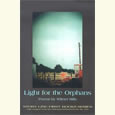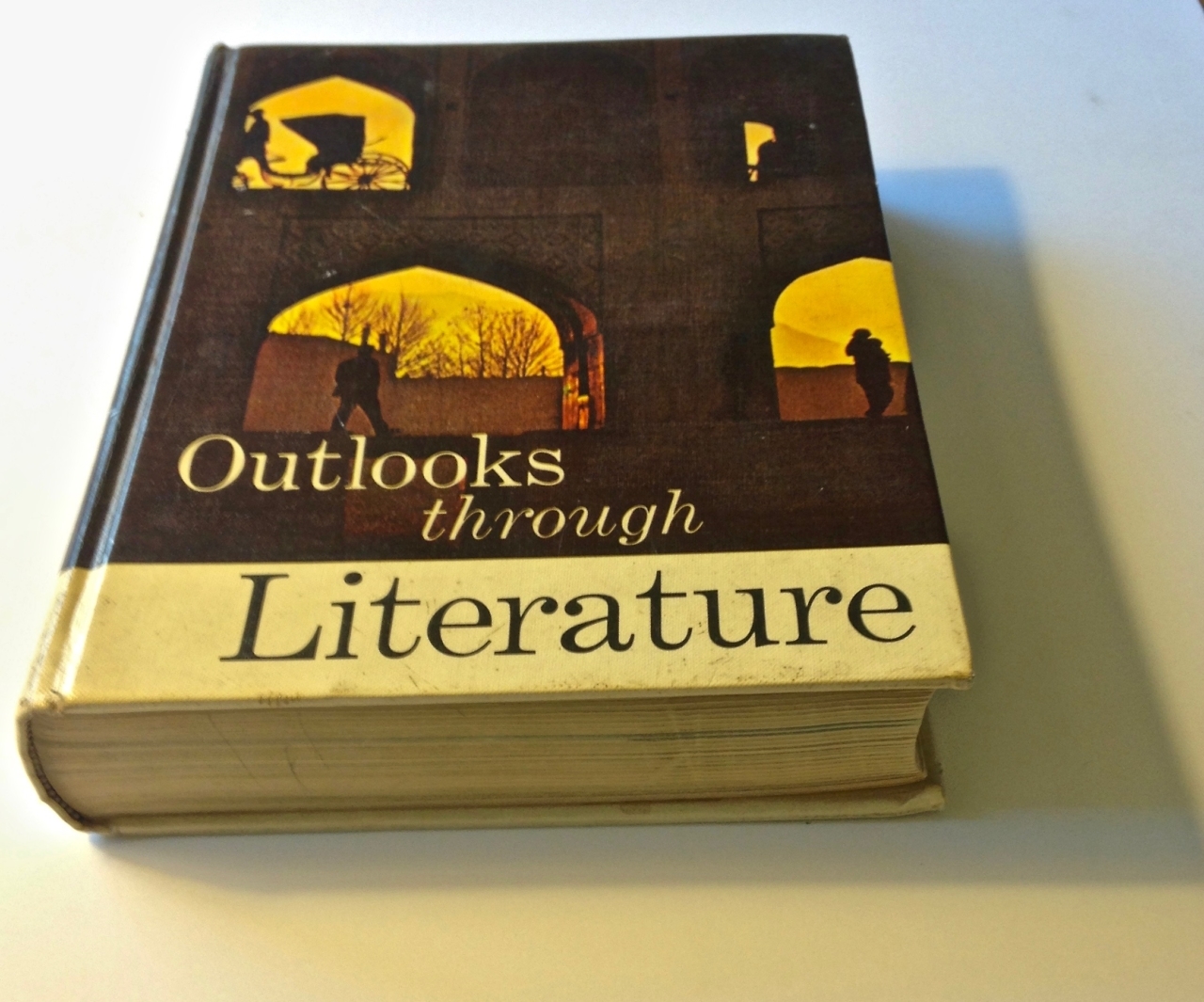Flight to Balad
We pushed it way too far but miraculously escaped with our lives
Sometime during the night, the generator ran out of gas. Cold waking hours revived memories of winter mornings at my grandparents’ house in the country. The fireplace never lasted through the night. It was a certain type of cold — penetrating, humbling, and difficult. It was the kind of cold that made you feel poor.
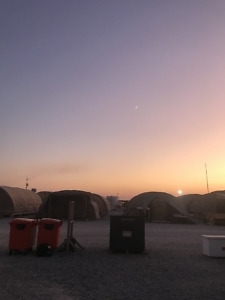
Illuminated only by my Army flashlight, this cramped little room had been my home for the six weeks I’d lived in Mosul, Iraq. It was harsh and austere, but that kind of thing didn’t matter to me much anymore because life as an Army pilot has a way of extinguishing concerns about physical comfort. I had what I needed: books sent from friends at home and a thin, worn-out mattress covered by the old wool Army blankets issued to me a long time ago, when I was young.
***
My Iraq war began when the 2-33rd Squadron, a neatly woven fraternity of veteran pilots, trusted mechanics, and 20-something medics, was alerted for duty. We were called up to support coalition forces in northwestern Iraq. Relieving a unit based at “Key West,” the exotic-sounding American name for an old Iraqi jet fighter base, was our assignment. These Army fliers taught us everything they’d learned during their long year here. What they could not make us understand was the specter of joy, excitement, fear, and sorrow that would visit us in the coming year — a psychological high-wire act that you have to experience for yourself.
I was posted to a two-ship detachment serving the Army headquarters up in Mosul, about 30 miles north of Key West. Missions there began early, often before dawn, running into exceptionally dark nights flying out over the barren wasteland desert of northern Iraq. Flying from the Syrian border to the Iranian frontier, we transported troops, evacuated wounded, and delivered mail and supplies. Sometimes we transported political stars who did not realize how out of place they looked in the back of a helicopter, wearing borrowed body armor and oversized helmets with expensive Italian loafers and prissy-looking sunglasses.
Protecting our camp were the paratroopers of Detachment 101. Serving as a kind of Praetorian Guard, they were well armed, well trained, and effective. Many came from the underclass of American society and had run into a little trouble growing up; the bootstraps life of the Army was an attempt to do better. It was understood that they would do the things that needed to be done, the heavy lifting associated with American policy here. It was messy, often brutal work. They were the bravest people we had. Together, we lived in Saddam’s presidential palace turned barracks in the northern part of the city.
***
That night, sleep would not come. It could be tough to quiet your mind here, and so sleep was elusive. With the dawn came routine: wake up, get dressed, then fly … a lot. It was a simple life with straightforward expectations — fly every mission, every day, all day. There was no saying no. Outside in the diesel and canvas smell of Army life in the field, I saw my aircraft being fueled as the mechanic tinkered some with the right engine. Smoke from the early morning artillery shelling hung stubbornly in the air, a bitter, acrid smell bearing witness to the fact that this deployment was not a training exercise. Gunners ate their breakfast from hard-to-open brown plastic bags. They were nonchalant, effortless, almost casual, and very efficient in their work. I was glad they were on our side. This was one of those mornings when I recognized how far I was from home and how long I was going to be out here.
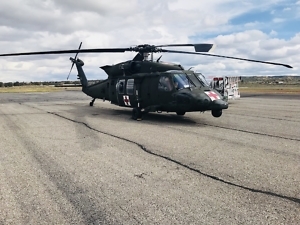
A briefing outlining our mission began the day. I’d done this many times around the world in the past 23 years of military flying, and now taking my familiar place in the cockpit, it didn’t seem like it was going to be a bad day. Following the morning sortie, the cold, dark dawn gave way to pleasant early winter light. I ate lunch sitting on the ground beneath a big, blue sky. Christmas was approaching and after the holidays we would be able to say that next Christmas we’d be home. It was the last happy thought I’d have for a long time.
When my crew rounded the corner in a sprint, their expressions said it before they could. There’d been a big explosion at the mess hall, and we were needed to evacuate the casualties — right now. Running to the landing pad, I pulled on my flight gear and started the engines as the crew piled on. Lifting off, flying at maximum speed, roaring over the city at rooftop level, we were on the scene in moments. Our radio hummed with details about the attack … there was something about a suicide bomber ….
***
Approaching the makeshift hospital in Mosul, I could see the results of the bomber’s work. The mess tent was shredded badly. Medics tended the wounded; others prepared those thick gray bags that would be needed later to account for the carnage. As someone waved us in, my crew, disregarding the danger, jumped out to help because it seemed like the right thing to do. It was almost a fatal decision.
Time slowed. Medics seemed to hurry, yet it was taking too long to load the ashen-faced man lying on a stretcher beside the landing gear. Shots ricocheted around us, though somehow none of my crew was hit. Sitting there in the cockpit offered few options. I prayed they would hurry before one of our assailants got lucky. Suppressing the urge for self-preservation, I did what was expected of me and waited. Finally, medics flung open the cargo doors and deposited an Iraqi man whose drawn and lined face exposed a life well acquainted with war and hardship. Shouted instructions to “Get him to Balad!” — the site of the big American trauma hospital — sent us on our way.
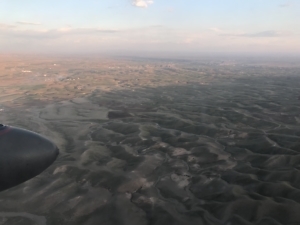
Lifting off, banking hard to the right, I set course for the hospital. There was fuel enough for a “max power full speed” transit to Balad, which was important because in the moments following severe injury, speed is life. We could leap the 125 miles in less than an hour. God and the surgeons would have to do the rest.
Streaking across the desert landscape, I hugged the ground low and fast until well away from the city. This prevented the terrorists from shooting us down with cheap foreign copies of American missiles. Soon, however, a new menace would appear on the horizon. High up ahead, thick dust was building into a storm.
Although it is oppressively hot sometimes, Iraqi weather is actually benign with respect to flying. But when sandstorms come, it is dangerous. Our voyage this day would be challenged with towering, turbulent pillars of dark brown dust and desert debris. A difficult test of flying skill, nerve, and guts lay ahead.
I climbed quickly to 3,000 feet, which seemed like it would get us over the top, but that was just an illusion. Continuing upward, it was difficult to judge the altitude that would clear this thing. At first, I thought 5,000 or 6,000 would do. As 7,000 rolled by on the altimeter, the ground was blotted out of sight. With sky and horizon obscured, my world collapsed into the cockpit and I focused on the instruments. I was flying upward, seeking a clearing, a refuge that would not appear. Reaching 10,000 feet, I decided going higher was pointless. We were entombed in this high-altitude brown labyrinth. There was no radio contact and no radar. We were isolated and alone.
Fifty miles from Balad, the turbulence picked up. Our ship was buffeted severely while flying through swirling desert debris. Sand blasted the windshield, and the fuselage vibrated violently against the strain. Maintaining control became difficult. The pitching and rolling induced vertigo and disorientation, a potentially fatal combination. This was a conflict fought with disciplined concentration on fragile instruments. Slowly, the storm abated as we continued southeastward and began to catch fleeting glimpses of palm trees and villages below. A safe landing was beginning to seem possible as the tower cleared us for approach to the emergency medical landing pad.
***
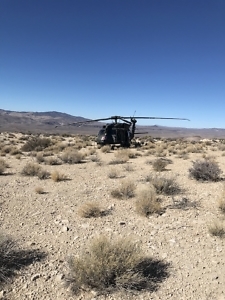
Military hospitals in combat zones are sad places. Young, strong people, just beginning to live, come here to die. Those who are horribly maimed in combat, those whose lives will be lived forever without the limb lost, or eyesight gone, come to this disturbing place. It is impossible to forget.
During the descent, we eluded the remnants of the storm while the landing area rose mercifully into view. My crew chief gave me his “I’d rather be lucky than good” look, as our landing gear reached out the final few feet to find the ground. Youthful-looking medics approached the aircraft with no idea about what we’d overcome to get here. They worked with the experience, skill, and efficiency born of too many times doing this. Over the loud engines, they communicated with each other using the signs and gestures of a deadly serious ballet. I knew it was taking too long. The hope I’d felt as we descended out of the storm faded. Why didn’t they just take him? Delays weren’t a good sign. Slowly, they drifted away to another aircraft, and fate completed the job. A gurney appeared and two young soldiers unfolded one of those gray bags, and then the matter was callously concluded. It was just that simple.
Missions yet to fly required us to banish this tragedy. Rising above the flat desert plain, we left Balad behind in the failing amber light of early winter. The sun completed its descent into the far western horizon, abandoning us to a soulless, deep black abyss. Shepherds’ camp fires flickered across the expanse. Crossing the ridge, I began to make out the glowing lights of ancient Mosul. We flew in silence under a canopy of stars that can only be seen in the far-off desert.
***
While making the final approach to our base, the adrenalin sustaining me on this day falls away. Now come thoughts of home. It will be hours, perhaps days, before I can make contact and tell my family that I’m all right. This is a deadly business. Over the years they have developed a sense for it. Communications on our base will be shut off allowing the Army time to notify families of the fallen in the traditional way. Next of kin do not need the truth from the internet. By morning in America, more lives will have been forever altered.
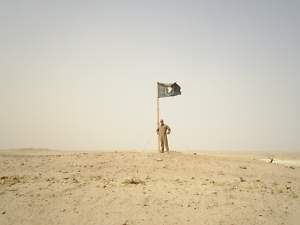
Ground crews, impatient to prepare the helicopter for the next day, guide me in. There are smiles, backslaps, and hugs signaling a happy communion with our own people. Here, no one cares about the Iraqi man, they care only about us. I avoid the debriefing, knowing there’ll be time later for the second guessers to examine me. Today, we’d pushed it way too far but miraculously escaped with our lives — plain and simple.
***
Quietly and alone, we went through our post-mission routine and then one by one walked the few meters back to our quarters to receive our tasking for the early morning launch. Studying the charts by flashlight, making calculations about fuel requirements, pickup times, and landing zones we’d visit tomorrow made me move on. Now, Mission 322 seemed long ago, though its residue of sadness lingered. It was cold again. I would not sleep very much that night, but when I did, I would dream of more flights to Balad.
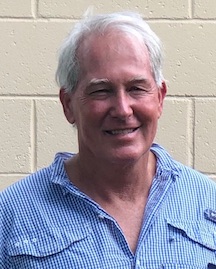
Copyright © 2022 by Michael Woodard. All rights reserved. Michael Woodard was born in Nashville and educated at Vanderbilt University. Recently, he finished a long career as a medevac pilot in the U.S. Army having completed three combat tours in Iraq and Afghanistan. He lives with his wife, Teresa, in Elizabethtown, Kentucky.
